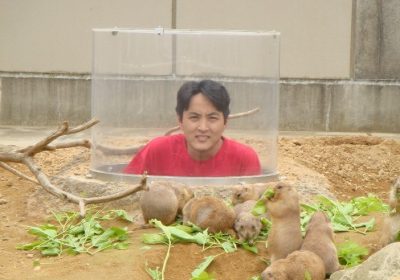
“[We] reflected on what it meant to be Brown academics (Curtis-Boles et al., 2012; Muhs et al. 2012) while personally navigating multiple cultural and work boundaries as transnational women (Joseph 2014).” (Lahiri-Roy, Belford, & Sum, 2021)
Looking for a standpoint from which to respectfully approach different knowledge systems, particularly local, traditional, and Indigenous ones, led me first to the paper from whom I’ve taken the line above, and then deeper into the rabbit hole of Third Culture Kids (Pollock & Van Reken) and Global Nomads (McCaig) – my own personal choice of identity label from the perspective of culture and context through which we are said to develop our identities in our developmental years before the additional layers of nuance and meaning are added as part of our growing up into adults.
Scanning the literature (for ex. Fanning & Burns, 2017; Cason, 2015) made me suddenly realize that by adopting the label, I became as much of an oddity or “other” to be researched, as any other “native” who has struggled with representations of their culture by third party researchers from a different knowledge system (see Nakata, 1998). The irony of reading an international school graduate’s dissertation study on international schools and TCKs (Tanu, 2013) is not lost on me; I’ve used my own childhood experiences as a means to explore design thinking (see Bhan, 2005-2007).
Now, how to explore it in order to discover what could possibly describe or define my standpoint, given I’ve spent more than 50 years dancing between cultures?
“Desired/intentional travel to another country, as young adults or in mid-career, stands in contrast to the dependency of simply being with parents where they are: “Generally, this is not a life choice, but rather an imposed situation” (Straffon, 2003: 489).
[…]
The concept [TCK] has served a significant role in articulating the unsettling and disorienting experiences of growing up and schooling outside one’s home culture, but not being fully part of the culture of one’s schooling and upbringing.” (Fanning & Burns, 2017)
Thus, while descriptively reflecting the identity labels in the opening quote – “brown academic” or “transnational woman”, it becomes clear to me that my situation maybe a tad more complicated than these better known representations of intersectionality. First and foremost, simply because international mobility began for me in 1970, I am a global nomad, a third culture kid, a multi-cultural kid, a child whose developmental years were spent outside of their passport country due to their parents’ profession, growing up in the expat bubble of the ASEAN in the 70s and early 80s attending the international schools in the British and American knowledge systems.
Oh hell, I’ve just made things far more complicated for myself. Or, in a way, far simpler, as I reflect on the various different formal schooling systems I have experienced in my life, beginning with the Montessori kindergarten run by Italian nuns in Calcutta in the late 1960s, and ending with my current university which is in Finland.
An Aboriginal standpoint is not a performance or display of identity nor a platform for presenting unexamined self-narratives as research (Nakata, 2007), but a complex lived reality in a framework of Law, relations, knowledge and practice (Rose, 2005). In relationally responsive standpoints, our relationships to people, Law and place shape our obligations, ethics and boundaries regarding what and how we investigate in the world (Porsanger, 2004). These relational protocols determine what we know, how we know it and what we do with that knowledge. (Yunkaporta & Shillingsworth, 2020)
A complex lived reality in truth, but is there a relationally responsive framework for TCKs from which to develop an articulation of a standpoint for investigation of the world? What if we are exploring different knowledge systems? While I have much more reading and thinking to do, I stand here with a gut hunch that for TCKs, particularly those who may have embraced the characteristics of being one as part of their own professional development (Schaetti, 2000), we may have a particularly empowering standpoint for observing the world and its various ways of knowing, doing, and making.
According to Hage (2005, p. 474), reflexive ethnography engages in the double gaze that is
“capable of capturing both descriptively the lived cultures with all their subtleties and analytically the global which structures them, both people’s experiences and the social environment in which this experience is grounded, both the experiential surrounding that people are aware of and the macro-‐global structures that are well beyond their reach”. (Tanu, 2013, pg 41)
Page 42 of Danau Tanu’s dissertation (Tanu, 2013) is where I will begin my own journey.